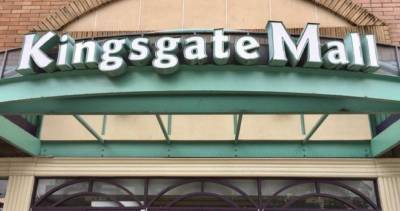Vancouver police start arresting Wet'suwet'en sympathizers to enforce injunction at access point to Port of Vancouver
About 40 Vancouver police showed up around 5 a.m. today to bring about an end to an effort to block goods from entering Canada's largest and most diversified port.
Police used loudspeakers telling protesters that due to a court injunction obtained over the weekend, they had to leave the Clark Drive entry to the Port of Vancouver.
According to the Red Braid Aliance for Decolonial Socialism, officers began making arrests as the land defenders chanted "no access without consent".
That comment is in reference to Wet'suwet'en hereditary chiefs not consenting to the $6.6-billion Coastal GasLink on their unceded traditional territory.
Demonstrators have been at the access point at Clark Drive and East Hastings street since Thursday (February 6) to support Wet'suwet'en hereditary chiefs who oppose the Coastal GasLink pipeline.
https://twitter.com/ybrend/status/1226863086704959488?ref_src=twsrc%5Etfw%7Ctwcamp%5Etweetembed%7Ctwterm%5E1226863086704959488&ref_url=https%3A%2F%2Fwww.cbc.ca%2Fnews%2Fcanada%2Fbritish-columbia%2Fanti-pipeline-protesters-prepare-for-faceoff-with-police-at-vancouver-ports-1.5457912
CBC News reporter Yvette Brend reported that police have taken down the barricade and it's largely been peaceful, apart from one bottle being thrown.
The officers said that demonstrators can remain on the sidewalks but must stay off the road.
https://twitter.com/stopdisplacemnt/status/1226881779342036998
Blocking entry to the port has been one of several actions by Indigenous and environmental activists who've been using the hashtag #ShutDownCanada.
Their goal has been to paralyze Canada's critical infrastructure in response to the RCMP enforcing an injunction keeping Wet'suwet'en people away from significant portion of their traditional territory in northern B.C.
Last week, Wet'suwet'en land defender Freda Huson told the Straight that infrastructure was at the heart of her people's concerns with the Coastal GasLink pipeline project.
“While we’re impacting their critical infrastructure, they’re affecting our critical infrastructure because the land base is really critical to us,” Huson said.
Demonstrators also blocked rail lines, interrupting Via Rail and CN Raiil traffic.
In addition, the Red Braid Alliance for Decolonial Socialism blocked access to Deltaport this weekend, where an injunction has also been obtained to clear the protest.
https://twitter.com/stopdisplacemnt/status/1226864232794181634
https://twitter.com/llikemoyd/status/1226855738158374913
https://twitter.com/atiyeahthoughts/status/1226783939215286273
https://twitter.com/gpsmendoza/status/1226859505230548993
https://twitter.com/gpsmendoza/status/1226861194981576709[/tweet[tweet]https://twitter.com/gpsmendoza/status/1226853414698733569
https://twitter.com/stopdisplacemnt/status/1226870923963162624
Meanwhile, one of B.C.'s largest unions, the B.C. Government and Service Employees' Union, has issued a statement that it's "deeply troubled by the current and ongoing events on Wet’suwet’en territory including the use of exclusion zones, forceful removal of land defenders, and threats to journalists".
"Further escalations threaten to unravel progress towards reconciliation," the BCGEU stated. "We urge the RCMP to withdraw and ask for all parties to resume talks to reach a negotiated settlement."
The BCGEU statement was issued on the same day that the B.C. Civil Liberties Association and the Union of B.C. Indian Chiefs amended a January 29 complaint to the Civilian Review and Complaints Commission for the RCMP.
The BCCLA and UBCIC objected to the magnitude of the Mounties' exclusion zone, which stretches over 60 kilometres of the Morice West Forest Service Road on traditional Wet'suwet'en territory.
"We are in absolute outrage and a state of painful anguish as we witness the Wet’suwet’en people having their title and rights brutally trampled on and their right to self-determination denied," UBCIC's president, Grand Chief Stewart Phillip, said in a statement last week.
The RCMP, on the other hand, have issued statements saying that somebody vandalized the Lamprey Creek Bridge along the forest service road, jeopardizing human lives, and placed metal spikes along the route to endanger police and contractors' vehicles.
After the BCCLA and UBCIC amended their complaint, the RCMP issued an invitation to reporters to visit the Unist'ot'en Camp, according to a tweet by CBC News reporter Chantelle Bellrichard.
https://twitter.com/pieglue/status/1226763423020539907















Comments